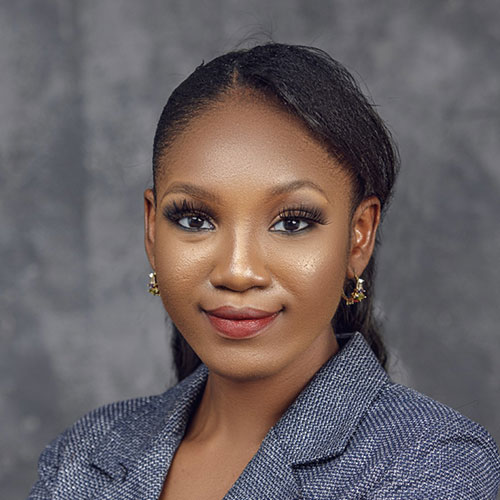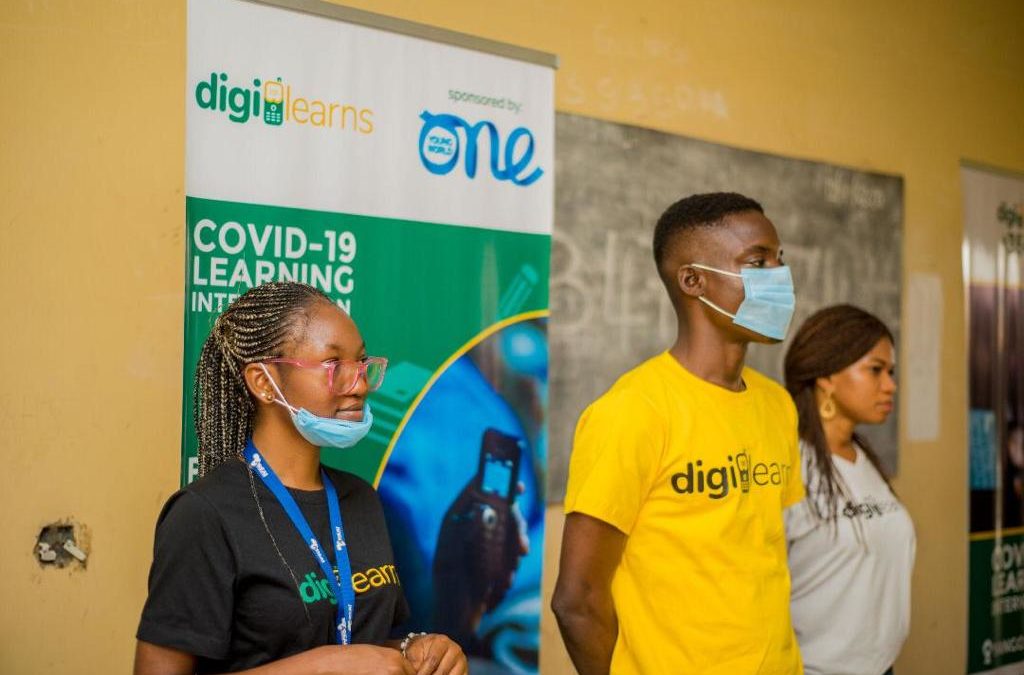To celebrate International Youth Day on August 12 and International Humanitarian Day on August 19, the Education Commission is hosting a weeklong “youth takeover” to share the voices of the incredible youth working in education right now. Follow our social media @educommission to learn more and check out the pages of our partners Theirworld and Eidos Global for more great youth content.
By Motunrayo Fatoke
Digital learning, a concept that was formerly felt futuristic has now become the saviour in a fast-evolving post-pandemic world. Who could have thought?
While it has been easier for us to adopt digital technologies into our economy, it’s been harder for the education sector, especially in the Global South, and we are running the risk of creating a generation who have missed out on valuable skills and education.
I am thinking about those children that are being left behind – simply because they live in remote areas, do not have access to fast internet, or cannot afford the devices. This disruption to their education inspired me to write about the skills gap that’s widening among children as digital literacy becomes more and more of a necessity for young people to enter the workforce.
In only a few months, the pandemic disrupted the daily lives of people around the world. For millions of school children, education switched to digital platforms and online communication which further expanded the already big gap between the privileged in urban communities and the less privileged in remote communities.
In Nigeria, before Covid-19, 4 in 10 Nigerians were living in extreme poverty. Many of whom were already behind on the learning scale even before the pandemic. Projections from the World Bank Group suggest that the combined effects of the Covid-19 crisis and natural population growth in Nigeria could leave 100 million people living below the national poverty line by 2022.
Digital literacy is a fundamental skill for students in the 21st century, but the most marginalised children are missing out. The existing learning gap continues to grow, and if we do not provide them with these skills, these children won’t be able to keep up with their peers around the world or continue to learn. With this in mind, it has been disappointing to see governments not prioritising education and skills development for children and young people in their pandemic recovery plans.
So we, the young people, schools and community members, have looked for our own solutions. One of the biggest challenges to overcome has been the need for students and teachers to use digital tools in order to transition to learning from home. To solve this, I and my colleague have been working on a first of its kind innovation in Nigeria. Digilearns leverages adaptive learning strategies and low-cost technology to make learning readily available, easily accessible and extremely affordable for learners from low-income families, remote areas, and nomadic settlements without the use of internet connectivity.
Students across Nigeria can access instantly delivered, locally relevant, and curriculum aligned educational materials via SMS or our specialised USSD code on any mobile network with a basic feature phone.
Only a small number of school aged children, mostly from high- and middle-income households could afford to continue learning digitally. This is why innovations like Digilearns that bridge learning gaps are essential. Access to smartphones among low-income households is low and that has meant online learning has been out of reach for so many children.
This project has had many outcomes, and on top of increasing access to home learning such that children can learn whenever and wherever, students have been able to develop basic tech skills and improve their digital literacy. The platform provides tailored learning content for students, and has other interesting features such as quizzes, ask a teacher, past questions and an offline Google search feature.
Most of our beneficiaries used Digilearns in preparing for their external exams and the results showed what is potentially possible and achievable if the government begins to invest in the future which is swiftly going digital.
Looking forward, I hope to see the government give more priority to education. The budget of education should be increased to accommodate and foster effective implementation of digital tools and innovations like Digilearns, making it possible for education to be accessible to all as well as close the digital skills gap for good.
 Motunrayo Fatoke, 23, from Nigeria, is a Global Youth Ambassador with Theirworld. Motunrayo is an activist for quality education and has pioneered award-winning education-focused projects. She currently serves as the Chief Operating Officer of Aid for Rural Education Access Initiative (AREAi) and believes in the wielding the power of advocacy to effect a long-lasting change and championing a better world, one community at a time.
Motunrayo Fatoke, 23, from Nigeria, is a Global Youth Ambassador with Theirworld. Motunrayo is an activist for quality education and has pioneered award-winning education-focused projects. She currently serves as the Chief Operating Officer of Aid for Rural Education Access Initiative (AREAi) and believes in the wielding the power of advocacy to effect a long-lasting change and championing a better world, one community at a time.
